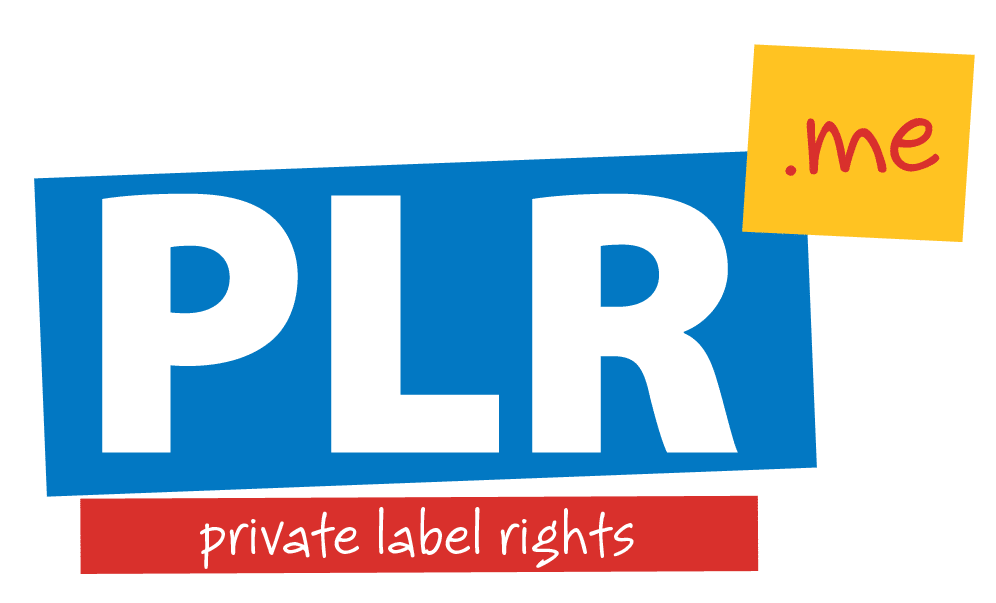One of the most common questions I get about PLR goes something like this:
“If hundreds of thousands of people do this won’t there be duplicate stuff online daily? I thought Google didn’t like duplicate content?”
Or something like this:
“I have heard that Google will close your account if they see you using the same articles – I have been told you need to make them at least 20% different otherwise you run the risk of getting in trouble.”
These are great questions and the best way to answer it is by explaining a little bit about how content on the internet works.
Firstly, Google cannot close your account or website. If they have reason to believe that you’re a spammer or that you’re trying to game their system, they can remove you from their search listings, but they can’t shut down your website.
Secondly, my PLR.me membership is limited to 500 members, max. When we reach that number, we’ll close our doors. It’s really that cut and dry. So there’s no fear of hundreds of thousands of people getting access to our private vault.
Now here’s the thing…
When CNN, USAToday, The New York Times, and all the news sites run an AP story on their website, it’s effectively the identical story, right? Oftentimes, even with the same title, too!
But obviously CNN.com and all those websites are still ranked well in Google.
The idea of some sort of duplicate content penalty is really a myth when it comes to the same content across many different sites. This is called “off-site” duplicate content – meaning the content occurs across different websites. Off-site duplicate content won’t get you banned unless you’re maliciously trying to game Google. Meaning, you’re scraping other people’s content and over-optimizing your site to manipulate your rankings.
The kind of content that Google does penalize you for is ON-site.
What is “on-site” duplicate content?
It means that your site has the same content, links, or title tags across the entire site with the intention of manipulating search rankings. For example, if you had a 500 word “Disclaimer” on every page of your site, Google would see this and it may raise a stir because the same 500 words appear on each page. Seems like keyword stuffing, right?
Or if you linked to the same 20 external websites in the footer of all pages on your site, then Google will think you’re trying to game their system by passing “link juice” those 20 other websites. Seems like paid links, right?
But if you have the same article on your site that others have, it cannot ban you from Google!
Think of it this way… if someone effectively stole every page on your site and published it on a thousand of their own sites, how could you control that? You couldn’t right?
Google doesn’t tend to punish you for things out of your control (i.e. other people stealing your stuff and publishing it), because it’s not your fault.
Best PLR Practices
Now of course, we always recommend changing the title of the article and at least the first couple of paragraphs. Or you can add your own commentary relating it back to your clients and specific niche. It’ll give you a greater benefit and shouldn’t take longer than 5-10 minutes. (It sure is faster than writing from scratch, isn’t it?)
But is it required to rewrite the content? Not at all!
If you don’t rewrite the content, will Google shutdown your site and alert the internet police? Of course not!
Will you get “better” results? Potentially, because it’s more relevant to your visitors and you’re adding value to the Google search results. Besides, it’s easy to tweak the title and a couple sentences, right?
Also, remember that not all members use the content in the same way and at the same time. Some create videos out of it. Others use the materials in members areas or within email auto-responders (which Google won’t ever “see” since it’s behind closed doors). And, of course, a mix of unique content and PLR is always a good strategy.
So my best advice would be to use, re-use, then recycle the content in many ways so you really get the greatest value.
I’ve personally taken sites from 0 to 4000 unique visitors in about 4 months just by using a mix of unique and PLR content, so it’s a proven system.
I hope this dispells the “duplicate content penalty” myth that has made its circles around the web!
To your success,
![]()
Ronnie Nijmeh
PLR.me
dupe content duplicate content penalty google off-site duplicate content on-site duplicate content plr plr content plr penalty private label content private label rights

Comments are closed.